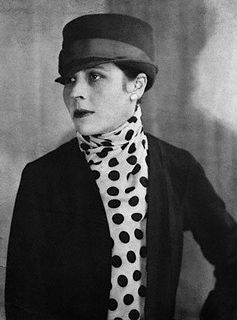A Quote by David Wroblewski
She had learned, in her life, that time lived inside you. You are time, you breathe time. When she'd been young, she'd had an insatiable hunger for more of it, though she hadn't understood why. Now she held inside her a cacophony of times and lately it drowned out the world. The apple tree was still nice to lie near. They peony, for its scent, also fine. When she walked through the woods (infrequently now) she picked her way along the path, making way for the boy inside to run along before her. It could be hard to choose the time outside over the time within.
Quote Topics
Along
Also
Apple
Been
Before
Boy
Breathe
Cacophony
Choose
Could
Drowned
Fine
Had
Hard
Held
Her
Hunger
Insatiable
Insatiable Hunger
Inside
Lately
Learned
Lie
Life
Lived
Making
More
Near
Nice
Now
Out
Outside
Over
Path
Picked
Run
Scent
She
Still
Though
Through
Time
Times
Tree
Understood
Walked
Way
Why
Within
Woods
World
Young
Related Quotes
At that moment a very good thing was happening to her. Four good things had happened to her, in fact, since she came to Misselthwaite Manor. She had felt as if she had understood a robin and that he had understood her; she had run in the wind until her blood had grown warm; she had been healthily hungry for the first time in her life; and she had found out what it was to be sorry for someone.
Her life was a slow realization that the world was not for her and that for whatever reason she would never be happy and honest at the same time. She felt as if she were brimming always producing and hoarding more love inside her. But there was no release. table ivory elephant charm rainbow onion hairdo violence melodrama honey...None of it moved her. She addressed the world honestly searching for something deserving of the volumes of love she knew she had within her but to each she would have to say I don't love you.
"She (Minnie Ruth Solomon) was unusual because even though I knew her family was as poor as ours, nothing she said or did seemed touched by that. Or by prejudice. Or by anything the world said or did. It was as if she had something inside her that somehow made all that not count. I fell in love with her some the first time we ever talked, and a little bit more every time after that until I thought I couldn't love her more than I did. And when I felt that way, I asked her to marry me . . . and she said she would."
She tried to think of what to say to make it all better again, or at least the way it was before she'd made her confession, though she didn't regret having confessed. Perhaps that was what had been wrong with her all along. Now that the lie wasn't between them anymore, maybe she could love him again.
Earth is ancient now, but all knowledge is stored up in her. She keeps a record of everything that has happened since time began. Of time before time, she says little, and in a language that no one has yet understood. Through time, her secret codes have gradually been broken. Her mud and lava is a message from the past. Of time to come, she says much, but who listens?
From the first time he'd met her, he'd sensed an air of contradiction about her. She was very much a woman, but still retained a waiflike quality. She could be brash, and at times deliberately suggestive, yet she was painfully shy. She was incredibly easy to get along with, yet she had few friends. She was a talented artist in her own right, but so self-conscious about her work that she rarely completed a piece and preferred to work with other people's art and ideas.
Day and night she had drudged and struggled and thrown her soul into her work, and there was not much of her left over for anything else. Being human, she suffered from this lack and did what she could to make up for it. If she passed the evening bent over a table in the library and later declared that she had spent that time playing cards, it was as though she had managed to do both those things. Through the lies, she lived vicariously. The lies doubled the little of her existence that was left over from work and augmented the little rag end of her personal life.
She was nervous about the future; it made her indelicate. She was one of the most unimportantly wicked women of her time --because she could not let her time alone, and yet could never be a part of it. She wanted to be the reason for everything and so was the cause of nothing. She had the fluency of tongue and action meted out by divine providence to those who cannot think for themselves. She was the master of the over-sweet phrase, the over-tight embrace.
As he was about to leave, she said, "Murtagh." He paused and turned to regard her. She hesitated for a moment, then mustered her courage and said, "Why?" She though he understood her meaning: Why her? Why save her, and now why try to rescue her? She had guessed at the answer, but she wanted to hear him say it. He stared at her for the longest while, and then, in a low, hard voice, he said, "You know why.
Her thoughts ran away to her girlhood with its passionate longing for adventure and she remembered the arms of men that had held her when adventure was a possible thing for her. Particularly she remembered one who had for a time been her lover and who in the moment of his passion had cried out to her more than a hundred times, saying the same words madly over and over: "You dear! You dear! You lovely dear!" The words, she thought, expressed something she would have liked to have achieved in life.
My mother hid the struggle from us children. She complained about her salary, and she had a tough time. Although she became a headmistress, she still had to do a lot of sewing. The more I think about her, the more remarkable I realise she was. And she understood straight away when I said that I wanted to write.
She emptied herself of Fabio and of herself, of all the useless efforts she had made to get where she was and find nothing there. With detached curiosity she observed the rebirth of her weaknesses, her obsessions. This time she would let them decide, since she hadn't been able to do anything anyway. Against certain parts of yourself you remain powerless, she said to herself, as she regressed pleasurably to the time when she was a girl.






































